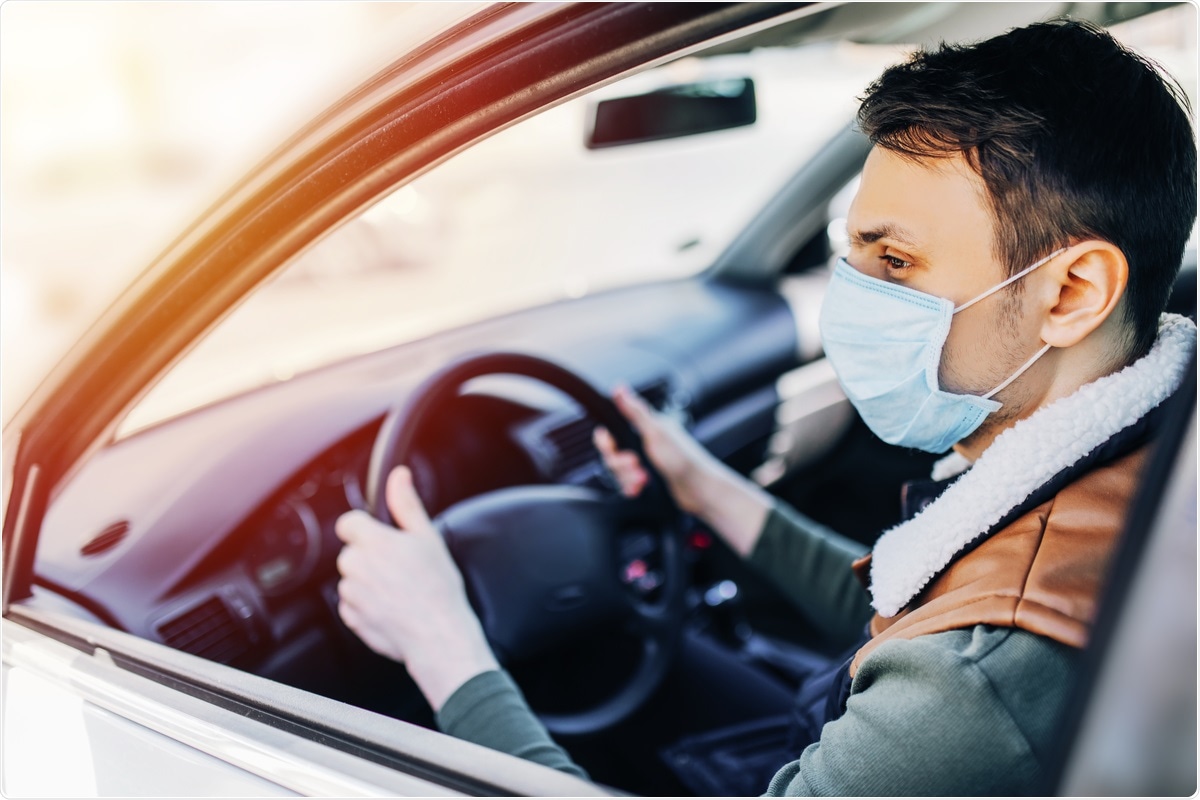Heat exposure can effectively inactive severe acute respiratory syndrome coronavirus 2 (SARS-CoV-2), the causative agent of coronavirus disease 2019 (COVID-19), similar to other viruses. Common touchpoints in private and public vehicles can receive heat treatment as a form of sanitization to kill heat-sensitive viruses, such as SARS-CoV-2. This form of sanitization can be performed routinely with general cleaning or as a sanitization protocol following exposure from an infected person.
 Study: Heat efficiently inactivates coronaviruses inside vehicles. Image Credit: Shopping King Louie/ Shutterstock
Study: Heat efficiently inactivates coronaviruses inside vehicles. Image Credit: Shopping King Louie/ Shutterstock

 *Important notice: bioRxiv publishes preliminary scientific reports that are not peer-reviewed and, therefore, should not be regarded as conclusive, guide clinical practice/health-related behavior, or treated as established information.
*Important notice: bioRxiv publishes preliminary scientific reports that are not peer-reviewed and, therefore, should not be regarded as conclusive, guide clinical practice/health-related behavior, or treated as established information.
SARS-CoV-2 is persistent in dust in indoor settings by environmental surveillance. Several studies have demonstrated that atmospheric air and surfaces of public vehicles are commonly contaminated with SARS-CoV-2 particles.
A study available on the bioRxiv* preprint server investigated if heat inactivation treatment was a viable form of sanitization for high-touch materials commonly located on public and private transport vehicles. Due to SARS-CoV-2 having a classification of Biosafety level (BSL) 3, it cannot be tested in field studies, so the authors decided to use Bovine Coronavirus (BCoV) as a substitute. In previous research, BCoV has been utilized as a substitute for Middle Eastern Respiratory Syndrome (MERS) and SARS, both of which are of the Coronaviridae family, as are SARS-CoV-2 and BCoV.
A preprint version of the study is available on the bioRxiv* server while the article undergoes peer review.
Study methodology
The surfaces deemed highpoint included gear shift knob, door handles, turn and wiper levers, steering wheel, buttons and touchscreens, grab handles, armrests, seat upholstery, belts, cup holders, seat adjustments, console bins, and seat backs. The surfaces selected for the experiment comprised various materials, so one cm2 sample of each material was used for the procedure. In triplicate, each sample piece was placed into a single well of a 12-well dish.
The authors performed six experiments, and throughout these procedures, an average of 2.7x106 TCID50 units of BCoV-Mebus was added to each sample as a single drop. The samples containing the virus were placed in a humidity-controlled incubator set to 55% relative humidity and 56°C.
The hard plastic obtained from the seats was cut into one cm2 coupons, placed into single wells of a 12-well dish, and had an average of 2x106 TCID50 added via single drops. These samples were placed inside a bus in various locations, and via a gas heater, the bus was heated to 56°C.
The findings from the study
To test the effectiveness of 56°C on BCoV infectivity, the authors incubated a solution of 3.64x105 ± 2x105 (n=4) TCID50 units of BCoV in MEM for 0, 15, 20, 30, and 60 minutes. When compared to unheated samples of BCoV, virus samples that had been heated at 56°C for 15 minutes showed reduced infectivity by over 1000-fold. The authors could not retrieve any viable infectious BCoV from the samples heated for 30 or 60 minutes.
The results from the samples placed on the bus varied with the position in which they were situated. The samples placed towards the front of the bus showed a reduction in virus content by 99.5%, and the samples from the middle and towards the back of the bus displayed a reduction in virus content by 85%
The results presented in this study show that 56°C of heat is an inexpensive, effective, and efficient method that could be utilized to sanitize common touchpoints on privately and publicly used vehicles. Due to heat being widely available in vehicles, relatively safe, and practical, it should be a method that is considered for virus inactivation for enclosed spaces in vehicles.

 *Important notice: bioRxiv publishes preliminary scientific reports that are not peer-reviewed and, therefore, should not be regarded as conclusive, guide clinical practice/health-related behavior, or treated as established information.
*Important notice: bioRxiv publishes preliminary scientific reports that are not peer-reviewed and, therefore, should not be regarded as conclusive, guide clinical practice/health-related behavior, or treated as established information.
Journal reference:
- Preliminary scientific report.
Karthigeyan, K. et al. (2021) "Heat efficiently inactivates coronaviruses inside vehicles". bioRxiv. doi: 10.1101/2021.09.08.459486.